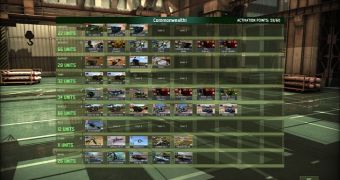When I was younger, I realized at some point during high school that human to human communication, both verbal and non-verbal, was seriously flawed and that it took a lot of effort and time to make sure that important information really was passed from an individual to another.
This might have been one of the reasons why I rarely played video games that involved other people and tended to spend most of my time with complex grand strategy titles, where the Artificial Intelligence could deliver a solid challenge and where it was hard to find friends for multiplayer matches.
But humans are much more fun to compete with than the AI and at the moment, I deal with my competitive side by playing almost nightly matches of Wargame Red Dragon, the third full release in the successful military-themed strategy title from developer Eugen Systems and publisher Focus Home Interactive.
Multiplayer gaming involves communication, regardless of whether you are playing one versus one and need to only focus on the enemy or if you are engaged in a team match where coordination with allies is required.
The problems start even before a match begins, when players constantly enter a lobby only to then immediately abandon it, probably because they do not like the overall setup of the game.
I am willing to negotiate on that and tweak the setting to get someone to play, but I never have the time to make my case, which means I have sessions when I sit for 10 minutes waiting for someone to join and give me the time to establish a connection.
There is a category of gamers in team-based matches, which is also present in Red Dragon, who fails to acknowledge the needs of the team and never reacts to requests for help or to statements about a shift in strategy.
I can understand having a different opinion or not agreeing on the finer points of military strategy, but there are Wargame Red Dragon players who do not even bother to answer the classic “Good luck, have fun!” when deployment starts or the “Good game!” at the end of matches.
I admit I sometimes behave badly myself, which mostly means quitting matches because I need to do something else at that exact moment, but I communicate about it and try to give friends and opponents info that shows why I am acting in a certain way.
Multiplayer gaming would benefit a lot if players understood how important words were for the overall experience.

 14 DAY TRIAL //
14 DAY TRIAL //